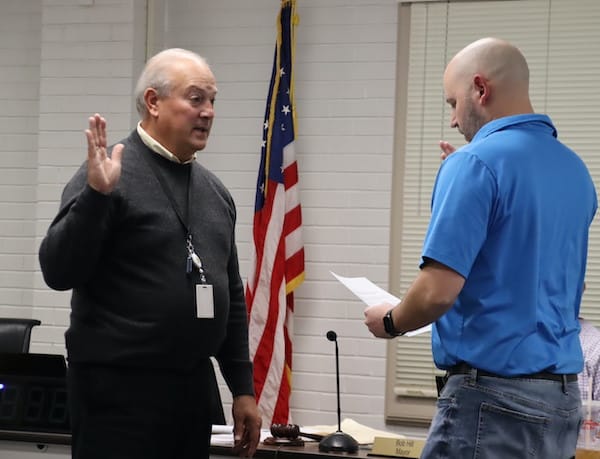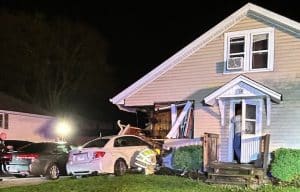Columbia talks ‘home rule,’ passes levy
The Columbia City Council approved a tax levy and special use permit, discussed park rules and seated a new alderman, but a majority of the meeting was dedicated to the idea of possibly becoming a “home rule” municipality.
Home rule allows more flexibility in managing city affairs while non-home rule entities may only act in accordance with existing state statutes.
Proponents of home rule argue it lets governments find “local solutions to local problems.”
Opponents of home rule claim the system is subject to abuse by elected officials due to greater leeway in assigning taxes.
For instance, non-home rule municipalities such as Columbia may increase sales tax in .25 increments with a 1 percent maximum rate limit. While home rule governments may only raise sales taxes in the same .25 percent increment, there is no maximum rate limit.
Columbia City Administrator Doug Brimm continued a discussion he began at the Nov. 21 council meeting in support of home rule, explaining its potential impact on the city.
Among other benefits, Brimm explained a potential to fund major projects in the future while also relieving property taxes paid by residents.
A switch to home rule would require voters to pass a referendum on the question before the city could create a home-rule charter.
Brimm said a resolution would need to be passed at the Dec. 19 council meeting if aldermen wanted a referendum placed on the April 2023 ballot.

Also on the upcoming municipal election ballot from Columbia will be the two Ward II alderman seats.
One of those seats was filled Monday by longtime Columbia resident Michael Lawlor.
Lawlor was sworn in as alderman prior to the meeting to fill a seat vacated by the recent resignation of Mark Roessler.
The seat currently occupied by Lawlor will be up as a two-year “unexpired term” in the April election.
The other seat held by Ward II Alderman Kevin Martens will also be on the ballot, but as a traditional four-year term.
In other action Monday night, the city approved its tax levy ordinance for the current fiscal year, which ends April 30, 2023.
The levy allows collection of $3,019,839 from taxable properties within city limits.
Brimm pointed out the tax levy will create a lower tax rate for Columbia residents for the third consecutive year.
Alderman also approved a special use permit to allow a car rental business to operate in a development at 306 Southport Drive.
An Enterprise Rent-A-Car location is planned for the business complex near Red Roof Liquor & Lottery off Palmer Road. Another possible business in the four-structure development is Starbucks Coffee.
One discussion item which is expected to be approved at the next meeting concerned a change in a park rule to allow dogs on the Bolm-Schuhkraft Park walking trail.
The Columbia Parks and Recreation Advisory Board met Oct. 25 and recommended an amendment to Section 12.32.808 of the Columbia Municipal Code which currently disallows dogs on the trail – the only location specifically named in the code.
If the amendment is passed, “No dogs allowed” signs on the trail would be replaced with a sign reminding residents of dog waste removal requirements.
Per council discussion Monday, if the change is approved, the corresponding city ordinance number would also be displayed on any “dog waste” signs as a matter of public information.
The future of Columbia parks is one of the major topics of the comprehensive plan process. The city announced last week an engagement report of community input data is now available.
In the 69-page document, results of public input about the future of Columbia have been compiled in an easy-to-digest format.
The report describes the process of gathering the data and shares results of surveys about Columbia in areas of future growth and development, economy, public safety environmental resources, multimodal transportation and infrastructure and utilities, among others.
Columbia Director of Community Development Scott Dunakey said his department will begin “analyzing results” to develop proposed goals which will then be discussed by the topic’s respective committee.
The comprehensive plan is expected to be completed in early 2023. Once completed, the plan will serve as a guide for the city for the next 25 years.
The community input report may be accessed at columbiaconversations.com/comprehensive-plan.






